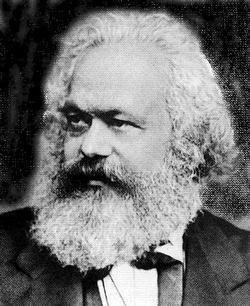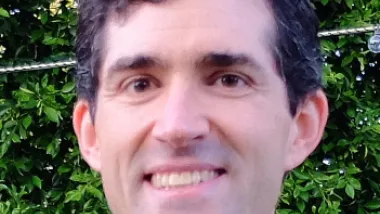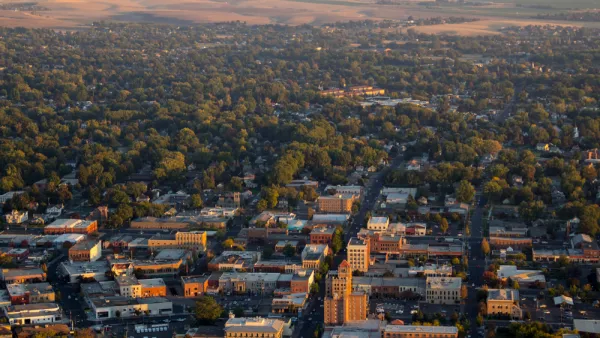I once was consigned to a table full of business school students at a land-use conference at UCLA. Trying to be a good sport, I offered the only idea that I'd ever had about business: car insurance charged according to miles driven. I posited that since risk and mileage were more or less correlated, it only made sense that people who drove more and incurred more risk should pay more. My tablemates stared back at me as if I had just issued a rousing recitation of Das Kapital.
I once was consigned to a table full of business school students at a land-use conference at UCLA. Trying to be a good sport, I offered the only idea that I'd ever had about business: car insurance charged according to miles driven. I posited that since risk and mileage were more or less correlated, it only made sense that people who drove more and incurred more risk should pay more.

My tablemates stared back at me as if I had just issued a rousing recitation of Das Kapital.
"The chances of getting in an accident are proportional to the amount you drive," I explained. "So people who drive more incur more risk and should pay more. Right?"
"Um, no," said one budding CEO. I asked him why not, and he mumbled something that implied that he was facing a bright career pushing numbers around a spreadsheet. It was then that I decided never to go to business school.
Unless I'm missing something, the number of miles someone drives does -- all else being equal -- in fact correlate to risk. If I drive zero miles per year, the chances of totaling my Prius are nearly submarine. If I take my Hummer on death rages every time I bemoan last night's American Idol dismissal, the chances that I will run headlong into a Dairy Queen rise substantially. At least think that's how it works.
Having had this idea shot down, I've kept it under my hat. I figured it was obvious enough that someone else (or many other people) would eventually come up with it. And I was right. Much the same concept appeared this month in an article in Democracy: A Journal of Ideas; written by Jason Bordoff, it appears among a series of articles on "The New Progressive Agenda,". Bordoff rightly notes that "pay-as-you-drive" insurance is not only technologically feasible but also "a win-win policy-good for society and good for most drivers-that makes significant progress on climate change, congestion, and other driving-related harms."
The simplicity, brilliance, fairness, and multifaceted benefits of this plan should be obvious to almost anyone (except MBAs). Not least among them are the benefits to cities.
Though planning is becoming an ever-more collaborative enterprise, most planning solutions still reside in the built environment. But this focus incurs two major problems. First, even the most mildly transformative projects can take years to complete, anything reaching beyond a block or a neighborhood takes nearly forever, Second, no matter how well planned or well intentioned a plan may be, it will still fall prey to human vagaries. Plans depend on people, and people sometimes act in strange ways.
But when money is at stake--and the stakes are clear and obvious--behavior becomes eerily predictable. And that's why car insurance rates and urban planning become two sides of the same coin.
The benefits of Bordoff's scheme should be obvious to any progressive urbanist. If the marginal costs of driving increase, on a mile-by-mile scale, then drivers are faced not with vague admonishments to give the car a rest but rather immediate, palpable incentives to drive less. I'm willing to guess that almost everyone, no matter the form of their neighborhood or the quality of their public transportation, could shave a few miles off their weekly travels if only they gave it some thought.
I'm not sure if pay-as-you-drive car insurance would be enough to inspire those changes in and of itself, but when coupled with gas prices, maintainence prices, parking rates, and a little PR, they might be an effective catalyst. Regretably (or, perhaps, fortunately), the gas prices seem to be holding up their end of that bargain these days.
Those costs would not singlehandedly create mixed-use buildings, charming pocket parks, or locally owned fair trade coffee houses. But it would encourage people to drive more wisely, pay more attention to their local amenities, and, perhaps, think about how to take better advantage of the existing urban fabric and to envision ways to make it better.
It's perfectly understandable why planning and insurance would not normally mix. One is a hideous affair of number-crunching and risk analysis while the other aspires to creating a home for humanity. I know which one interests me more. But if planning can tolerate some strange bedfellows, we may find some powerful allies who can help build friendlier, more functional cities, one mile at a time.

Analysis: Cybertruck Fatality Rate Far Exceeds That of Ford Pinto
The Tesla Cybertruck was recalled seven times last year.

National Parks Layoffs Will Cause Communities to Lose Billions
Thousands of essential park workers were laid off this week, just before the busy spring break season.

Retro-silient?: America’s First “Eco-burb,” The Woodlands Turns 50
A master-planned community north of Houston offers lessons on green infrastructure and resilient design, but falls short of its founder’s lofty affordability and walkability goals.

Test News Post 1
This is a summary

Analysis: Cybertruck Fatality Rate Far Exceeds That of Ford Pinto
The Tesla Cybertruck was recalled seven times last year.

Test News Headline 46
Test for the image on the front page.
Urban Design for Planners 1: Software Tools
This six-course series explores essential urban design concepts using open source software and equips planners with the tools they need to participate fully in the urban design process.
Planning for Universal Design
Learn the tools for implementing Universal Design in planning regulations.
EMC Planning Group, Inc.
Planetizen
Planetizen
Mpact (formerly Rail~Volution)
Great Falls Development Authority, Inc.
HUDs Office of Policy Development and Research
NYU Wagner Graduate School of Public Service





























